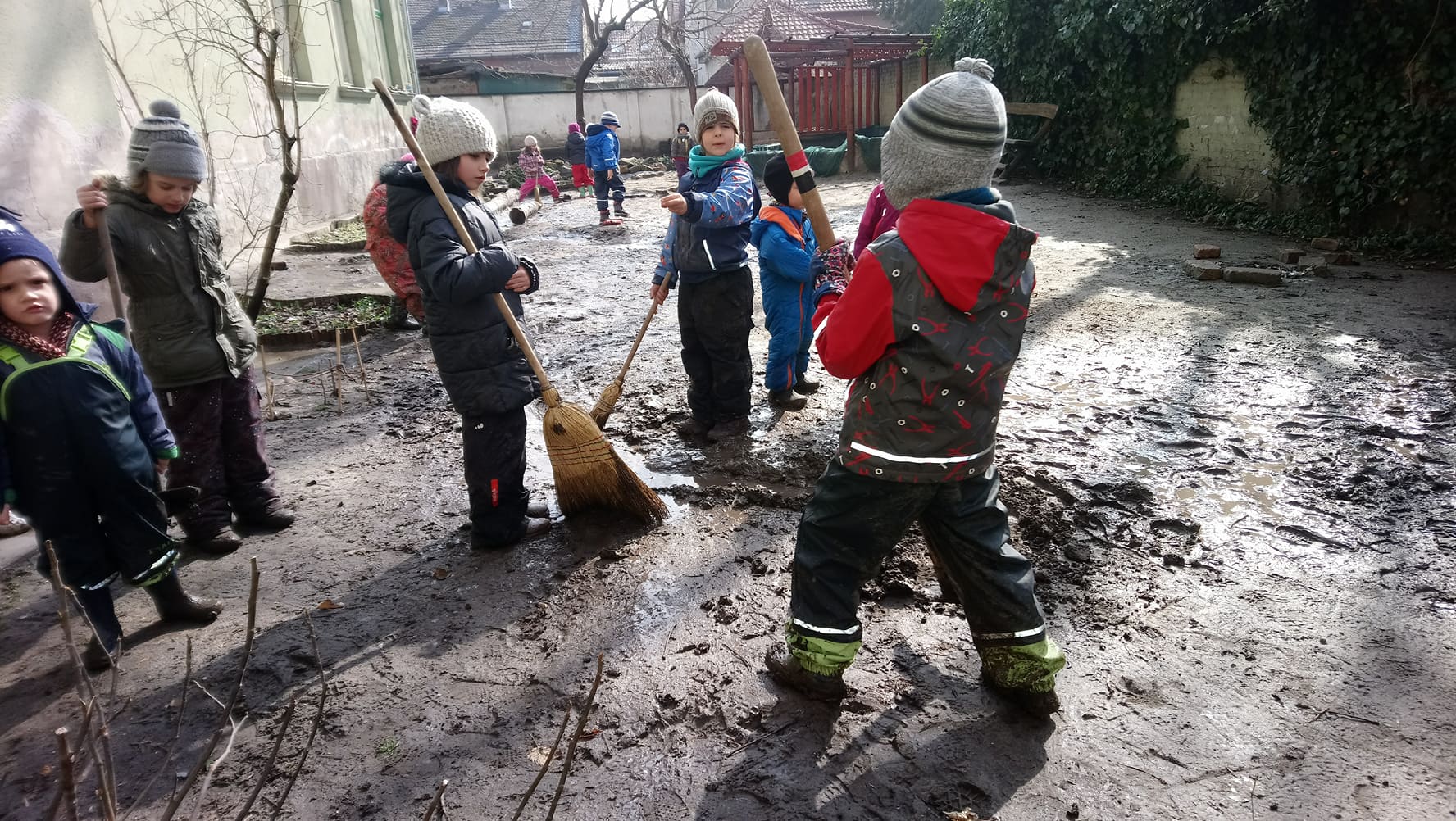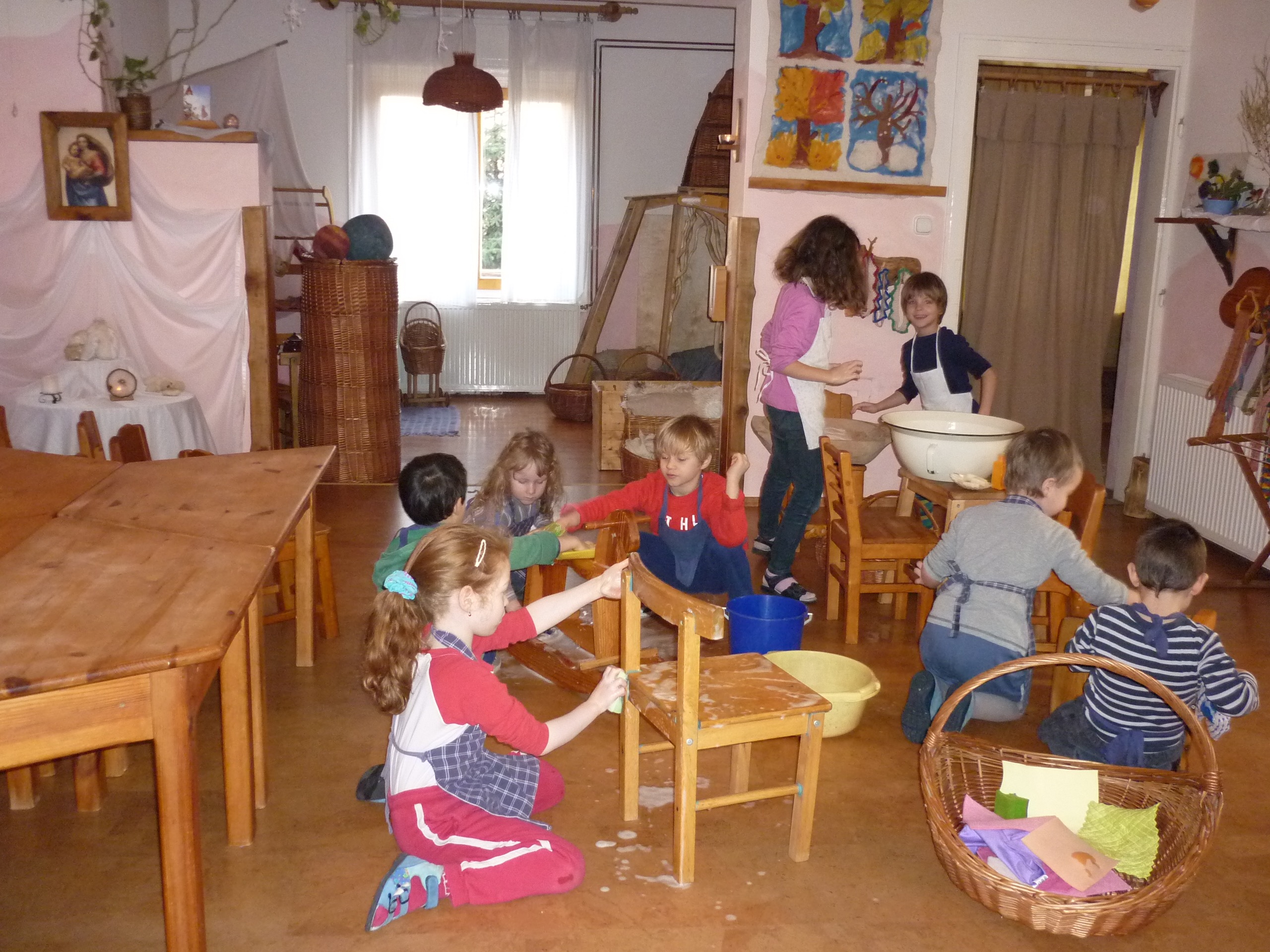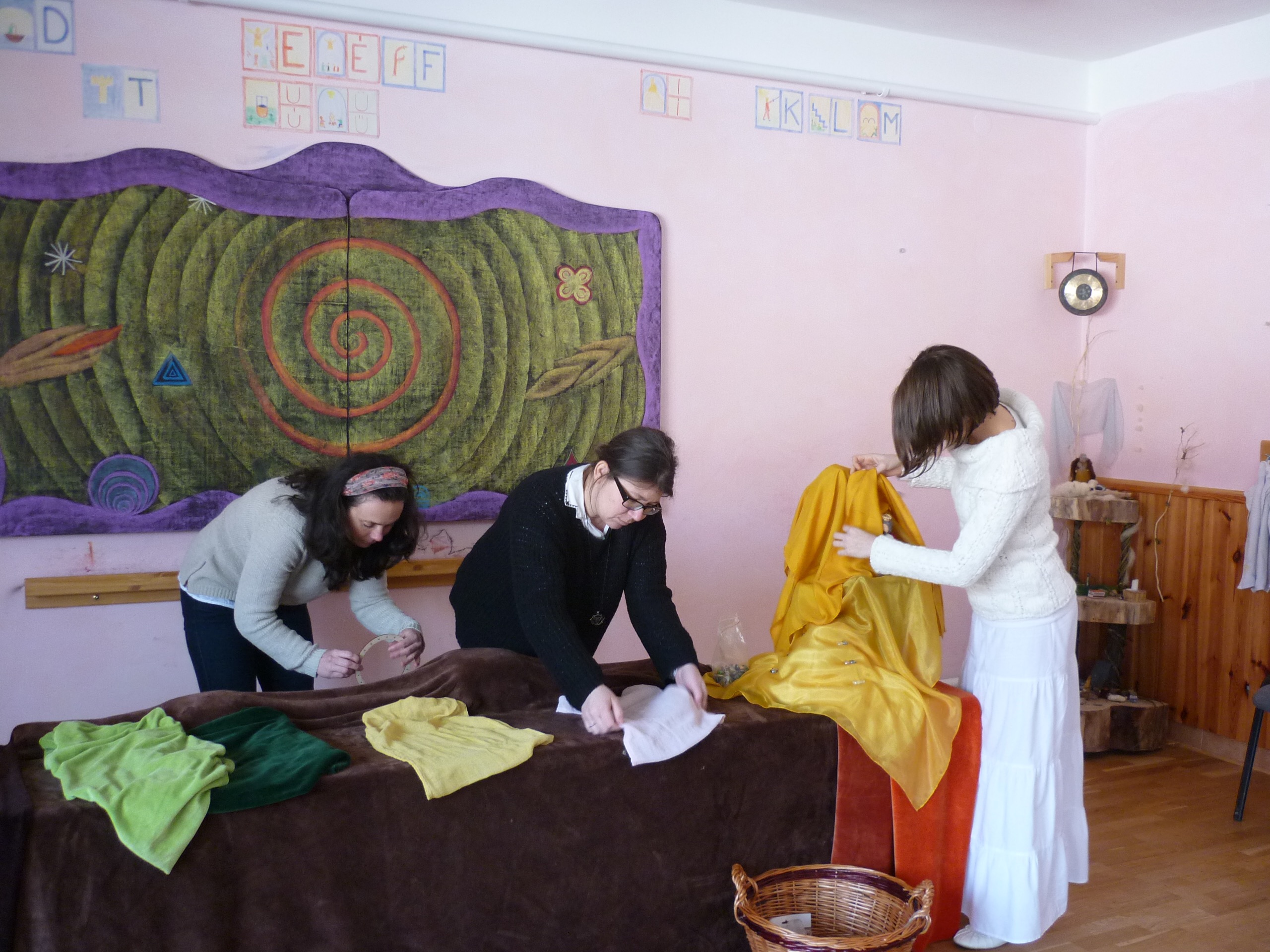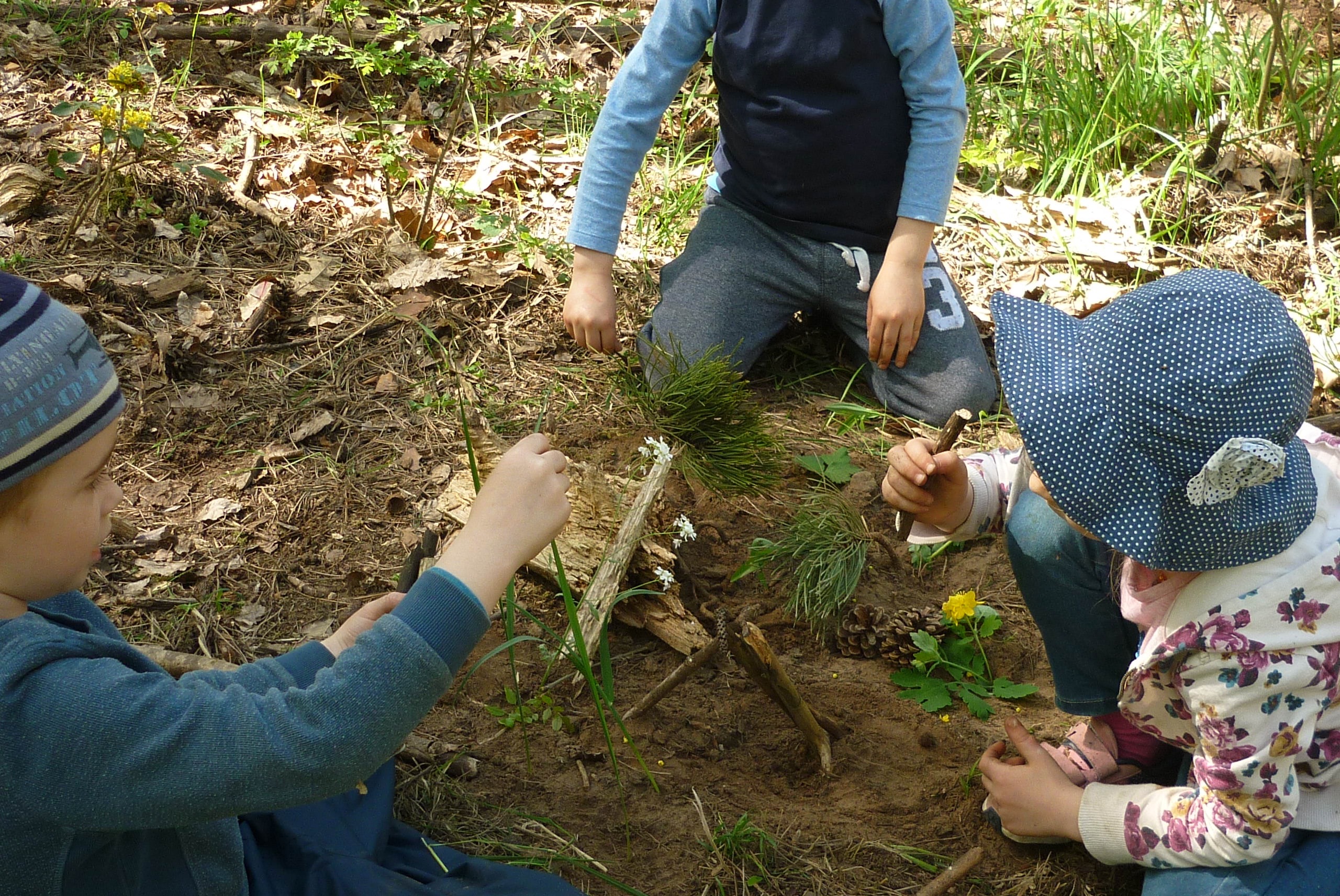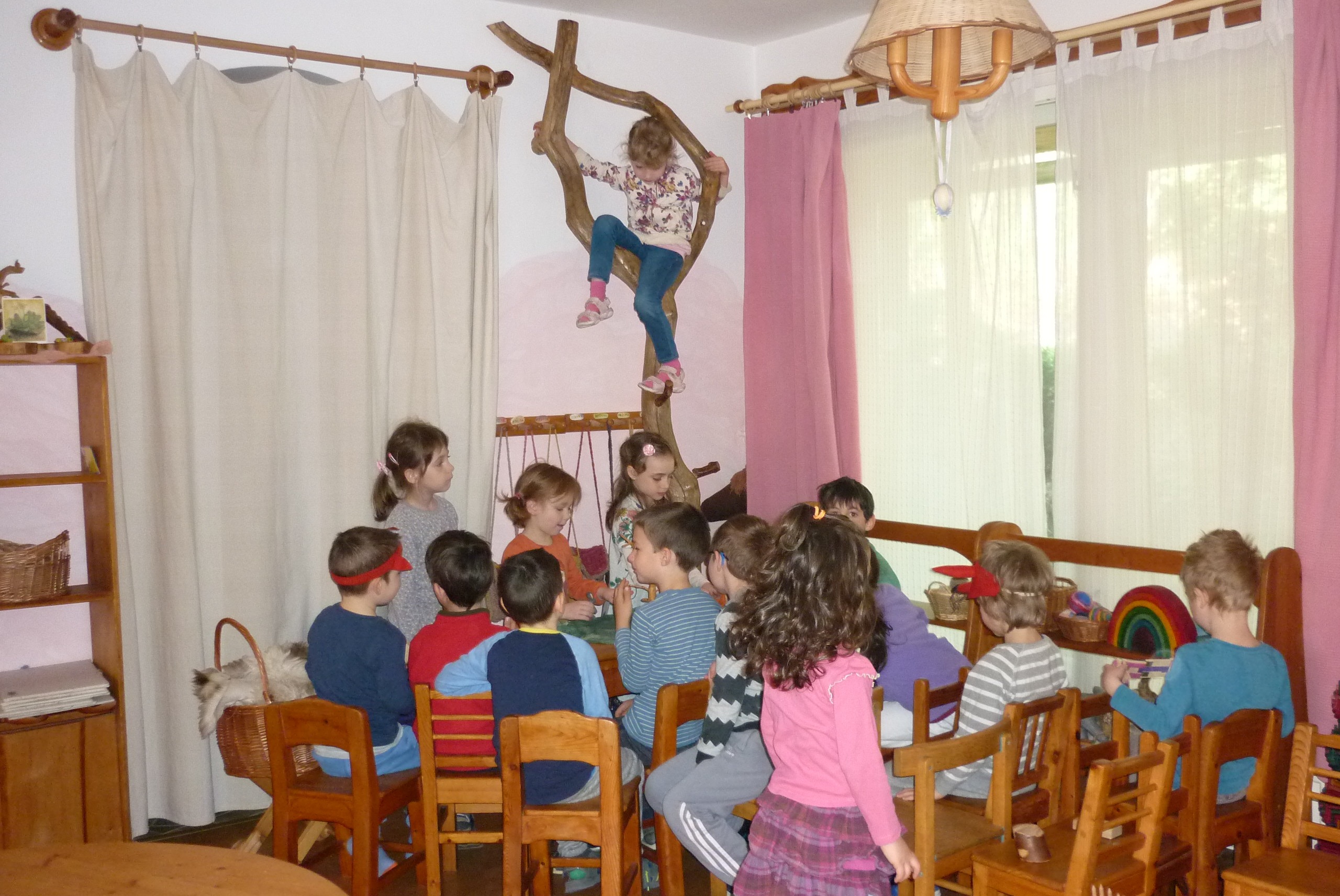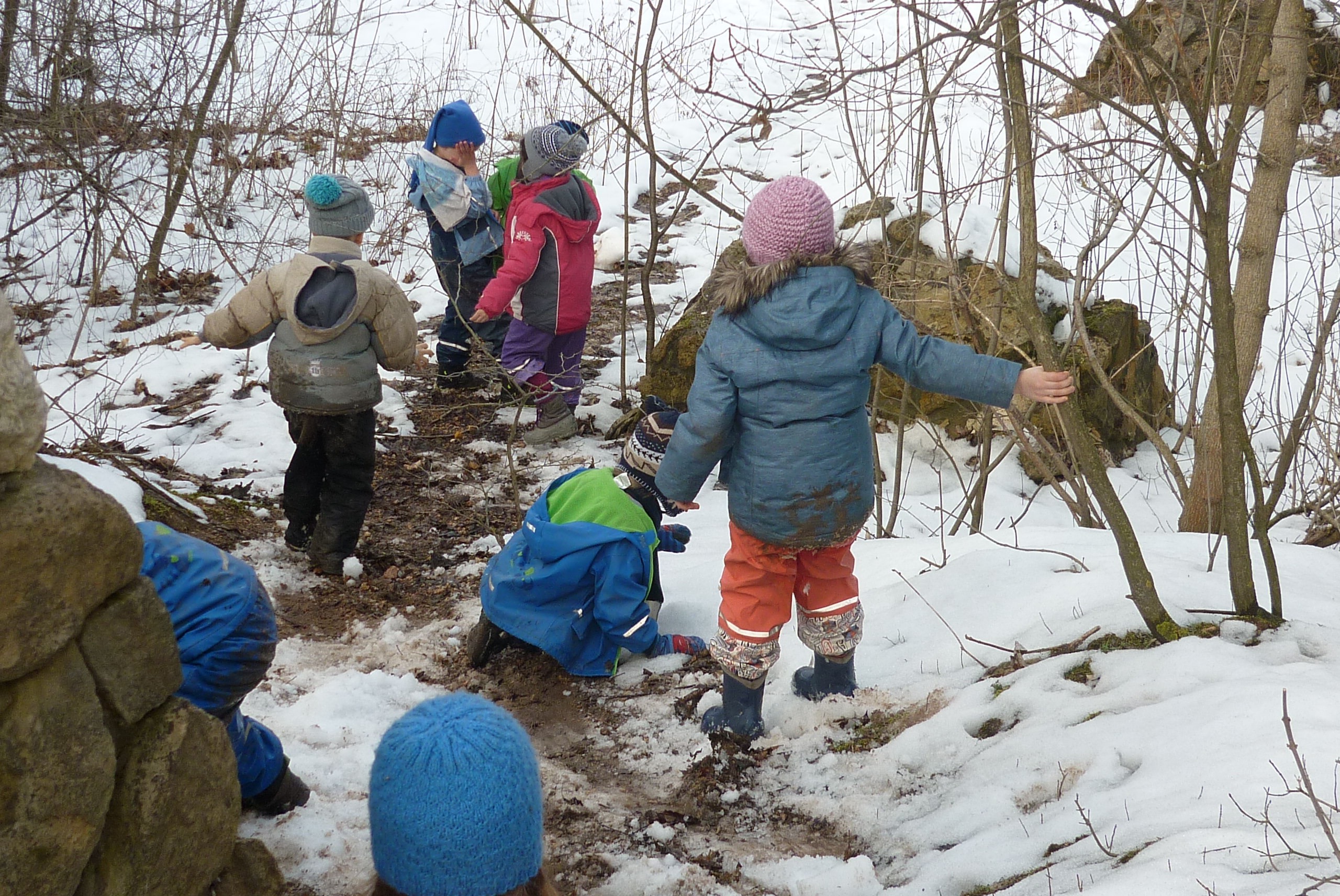Croatia
Argentina
Denmark
Thailand
Steiner/Waldorf Early Childhood Education in Thailand. In the early 1990s, Abhisiree Charanjavanaphat visited a Waldorf-inspired kindergarten in Chiang Mai set up by Dr. Ingrid Liebig-Hundius for her children. Abhisiree was inspired and tried to transform her Baanrak Kindergarten in Bangkok into a Waldorf kindergarten. Today, Baanrak has become a place for practicum experience for teachers and students interested in Steiner/Waldorf Early Childhood Education. Many individuals have been inspired by Baanrak and some became founders of Waldorf intiatives in various part of Thailand. Today, Baanrak is considered the home for Steiner/Waldorf Early Childhood Education courses.
In the late 1990s, Dr. Porn Panosot founded the Panyotai Waldorf Kindergarten and School. He also ran part-time Anthroposophy courses and Teacher Training courses. Many books were also translated and published in Thai language, including Work and Play in Early Childhood by Freya Jaffka, Toward Creativity by Joan Almon, Understanding Young Children (a collection of quotes from Rudolf Steiner), and stories for young children.
Due to the large enrollment in Panyotai, Dr. Porn encouraged a group of parents to set up another kindergarten and school called Sirattaya.
In the early 2000s, Usa Tanompongpan founded Tridhaksa School, applying Steiner/Waldorf principles in nursery, kindergarten, and primary school. Later on, after moving to new site where the school was run by teachers and parents, the school changed its name to Tripat School. Usa’s niece also founded another Waldorf kindergarten and school in the southeastern part of Bangkok.
Dr. Busabong Tantiwong (a university assistant professor) introduced Waldorf education in the Early Childhood Department at the University where she was working. She has been very supportive of the Waldorf early childhood movement in the country and wrote a book about Waldorf education. Some of her students became early childhood educators applying Steiner/Waldorf principles. One of her students wrote a book about Steiner/Waldorf Early Childhood Eduation in Thai language.
From 2001 to 2013, a 5-day Waldorf teacher training course supported by experienced Dutch teachers took place once a year in May. Early Childhood Education was also part of the training. This training also inspired and gave information to teachers, parents, and the public.
In 2002, Dr. Renate Long‐Breipohl from Australia visited Bangkok and encouraged the leaders of those initiatives to work together, and finally the first Early Childhood Course (2003-2006) in Thailand opened.
Dr. Renate was the course coordinator and 35 participants graduated. There have been 4 groups of graduates so far, from Thailand and neighboring countries. Many graduates from the course are active in various kindergartens both in Thailand and Malaysia, Indonesia, Singapore, and Myanmar. The course received recognition from IASWECE in 2020. Group 5 of the course started in October 2022.
In 2005, You are Your Child’s First Teacher (by Rahima Baldwin Dancy) was translated into Thai language by Suwanna Chokprajakchat and published. This book inspired many parents, including two parents who founded two nurseries (one in Chiang Mai and one in Khon-Kaen) in 2007. These two nurseries later became Waldorf schools.
In 2007 and 2015 Marjorie Theyer from New Zealand visited many initiatives in Thailand and gave useful suggestions and encouragement.
In 2007 several government Kindergarten Teachers applied Waldorf principles in their workplace with support from Dr. Maneewan Namsom. Those teachers also participated in the second training of ECC.
In 2019 Anupan Pruekpankajee, an Anthroposophical art therapist, set up a project called “Inner Art”. Some participants from this project became inspired and set up nurseries, kindergartens, and playgroups and also became participants in ECC.
In 2023 the Steiner/Waldorf Early Childhood Education Network Thailand was set up as a country association and became a member of IASWECE.
In April 2024 Rawimas Paramasiri, the administrative coordinator of the Early Childhood Course, became the representative of Thailand and joined the IASWECE council meeting for the first time.
In 2024 1 kindergarten and 4 schools are already on the Waldorf World List. Besides those five, 16 initiatives are using the Waldorf approach and six of these also educate children older than six years old.
South Korea
Taiwan
Waldorf education came to Taiwan with the founding of the Waldorf Kindergarten in 1996. Today there are about 20 Waldorf kindergartens. Most kindergartens take care of children from age 3 to 6, and some care for children from 2 to 3.
Waldorf kindergartens in Taiwan do not generally receive financial support from the government. This means a great degree of freedom from government regulation, but also brings financial and social challenges. The government funding policy has gradually changed in the last ten years due to the low Taiwanese birth rate. It is hard to say if this is beneficial for the development of Waldorf kindergartens, as funding from government is accompanied by more limits and interventions.
Working together: In addition to annual gatherings in different regions of Taiwan, Taiwanese teachers meet regularly every 2 years for a two-day conference attended by nearly 250 early childhood educators.
Taiwanese parents need kindergartens to be open all year long. Most kindergarten teachers only have national holidays off, with no winter vacations and only one week of summer vacations. Therefore the conference is a only two-day program, but it nevertheless really meet the needs of the kindergarten teachers.
In 2016, an Association of Steiner-Waldorf Kindergartens was founded and became a member of IASWECE. The administrative committee has undertaken organizing regional and national conferences, supporting new initiatives, and coordinating the development of the training.
Training: Preliminary meetings to form guidelines for Waldorf early childhood training took place in 2019 and 2020. Trainers from different training programs were working and learning together in the meetings. We are all striving for the description of the ideal quality for the program directors, tutors and for adult learning. Surprisingly, we felt the cohesion and high involvement among trainers. We look forward to more diverse, flexible and cross-regional cooperation with organizations.
Shy Tyng Kai is Taiwan’s representative on the IASWECE Council. She has been involved in Taiwan Waldorf Education movement for more than 24 years, in both legal areas and teaching.
Switzerland
Switzerland
Since the 1960s there has been a broad kindergarten movement working on the basis of Rudolf Steiner’s pedagogy. It has always been practised by many pedagogical and curative teachers in state kindergartens. In the 1980s, the movement experienced a great expansion with the founding of many new kindergartens.
Today there are about 70 Rudolf Steiner kindergartens with mostly 1-2 groups in the four parts of the country: German, French (Valais), Italian (Ticino) and Rhaeto-Romanic Switzerland. In addition there are about 40 playgroups and 10-15 day-care centres and just as many parent-child groups.
A full-time, practice-oriented, in-service training programme for kindergarten teachers was in place in Bern from 1977 until a few years ago and was led for decades by Elisabeth Moore-Haas. From the beginning she linked international cooperation with Switzerland through her involvement in the IVW (International Association of Waldorf Kindergartens), or later the IASWECE.
Both the kindergarten seminar and most of the kindergartens were and are run by private kindergarten or school associations and are run independently by the kindergarten teachers. Most kindergartens have always been fully integrated into the schools.
About 20 years ago, when major reforms were introduced at the state kindergarten level, the kindergarten teachers began to join forces and gave themselves a new organisational structure.
In 2000, the Coordination Office for Elementary Education (KEp) was founded: www.elementarpaedagogik.ch. Today, 2020, integrated into www.steinerschule.ch
The Coordination Office for Elementary Education (KEp) has as its task the fulfilment of the concerns of Steiner education with regard to the education of children of pre-school and first school age (0 – about 8 years).
– The KEp promotes these concerns to parents, teachers, therapists, medical practitioners and public institutions in the preschool sector.
– Through contacts and discussions, the KEp tries to stimulate open exchange, to convey understanding, to network people and institutions and to support existing institutions.
– The KEp takes note of educational policy developments in the pre-school environment and communicates them to the best of its knowledge to the teachers in the pre-school sector of the Steiner schools, as well as to the Working Group (ARGE) of the Steiner schools.
– The KEp helps to build bridges between the various contact partners of the specific institutions in the pre-school sector (day families and day care centres, playgroups, kindergartens and after-school care centres), who are responsible for the areas of care and education that are separated by political sovereignty.
– In addition, it pursues the goal of raising awareness for an understanding of childhood from birth to first school age as a total educational area.
– The KEp works to ensure that children’s needs are recognised and that children are given rights and respect accordingly.
– The KEp impulses, accompanies and networks projects and concepts that serve the further development in the pre-school sector against the background of Steiner education.
In the KEp, about 12 women work together in the Commission of the Coordination Office (KoKEp), who are responsible for various areas: all regions, training, international cooperation and those specifically responsible for the early childhood sector.
Themes that KEp works on in projects and at conferences over a longer period of time are:
– Early childhood education/ transitions
– Free play
– Dealing with media/prevention
– Language development
– Relationship education/prevention of abuse
At the time of the founding of the KEp, the call for family-supplementary forms of care alongside the provision of kindergartens became louder in society.
As a result, in addition to the Rudolf Steiner Kindergarten Seminar in Bern, a part-time training course for kindergarten teachers and playgroup leaders was set up at the Academy for Anthroposophical Education in Dornach, as well as further training opportunities for childminders and daycare centre staff.
The training to become an “early childhood educator” also began at that time. Since 2019, an additional training course for parent-child group leaders has been established.
Major changes followed over several years, which after 10 years resulted in the concept “Elementary level”, as a basis for the entire developmental area from birth to the end of the 8th year of life.
Today, the elementary level is an integrated part of Rudolf Steiner schools almost everywhere: www.steinerschule.ch
The elementary level is made possible by the cooperation of all teachers teaching in the developmental area, the support and therapy group, the parents and the school doctor.
At the elementary level, the school mission statement for the first and second grade merges with what is described by KEp and the Working Group of Rudolf Steiner Schools Switzerland as the mission statement for the pre-school level.
The elementary level forms a child’s experiential space which is divided into cross-age play and age-appropriate learning. During the first seven years, much attention is paid to the physical and sensory maturation processes in the elementary level, so that intellectual and emotional competences can build on a healthy foundation. At the elementary level, the child’s free play is highly valued as a creative and social learning experience.
The transition from kindergarten to the school learning period is designed in the elementary level as a transition with spatial separation. It takes place when the child has reached school readiness, usually in the 7th year of life. This level of maturity, as well as other modalities of the transfer, is decided in consultation with all those involved in education as mentioned above. At this point of development, the school’s admission procedure begins.
The deliberate introduction of the cultural techniques of arithmetic, writing and reading is only started after the child has transferred to the school learning period of the elementary level.
The elementary level includes:
– Parent-child groups
These are for children from about ½ year old to playgroup age (3 years). In these groups, fathers and mothers have the opportunity to share and do things together with other parents and an educator and to receive stimulation for the children’s play and everyday education, while the children are accompanied and supervised in their play by the educator.
– Playgroups
Here, children aged between about 2 ½ and 4 years are given the opportunity to make their first social non-family contacts once, twice or three times a week for about three to four hours in small groups of about 6-10 children. In a secure, sensitive atmosphere, the children can indulge in their joy of playing and find peace beyond the hectic pace that everyday life often demands.
– Kindergartens
In the kindergarten, the children are usually between 4 and 7 years old. The group size varies between about 12-24 children. It takes place in block times for 4 hours in the morning, plus here and there in the afternoon for children who are getting ready for school. Locally, there are supplementary lunch offers.
– Day care offers
Day care centres include toddler as well as playgroup and kindergarten age in their social structure. The services offered vary from extended opening hours with lunch, off-peak care to full-day care. Through the joint education of the different age groups, different skills such as tolerance, consideration, helping and supporting are developed. In the mixed-age group, the children experience community as an element that allows them to practise social skills and enables behavioural orientation.
– 1st and 2nd class with moving lessons
Specific to Rudolf Steiner schools in Switzerland is that they should be accessible to all, but are financed entirely privately without state financial subsidies.
– Cooperation
Since the elementary level (0-9 years) has been an integrated concept of the Rudolf Steiner schools in Switzerland, the colleagues at the schools work together in weekly conferences, as well as in additional regular elementary level conferences.
Once a year the Working Group of Rudolf Steiner Schools, together with the Academy for Anthroposophical Education in Dornach, organises the national in-service training days for all teachers.
Within the KEp we organise a specialist conference once a year, which takes as its starting point topics moved by the IASWECE or other topics for in-depth study. Regular exchange meetings take place in the various regions with parent-child group leaders, playgroup leaders, day-care centre leaders and kindergarten teachers to meet and deepen pedagogical knowledge.
– Training
- institute for elementary education: offers for training and further education in the early childhood sector, www.elementarpaedagogik.ch
- academy for anthroposophical education: training to become a kindergarten teacher, www.afap.ch
- accompanying art – training to accompany parent-child groups,
www.institut-elementarpaedagogik.ch, m.ecknauer@institut-elementarpaedagogik.ch.
Contact persons
For coordination: marianne.tschan@steinerschule.ch (since 2019)
For the Council: jacqueline.walter6@bluewin.ch
Status September 2020
Slovenia
The Slovene Waldorf movement has a tradition of almost thirty years. It is very well accepted by society, has a good reputation, working conditions and an ongoing constant cooperation with other pedagogical institutions, with the Slovene Ministry of Education as well as local communities. We have a common national association for schools and kindergartens – the Association for the Development of Waldorf Schools and Kindergartens of Slovenia. Its members include 9 kindergartens (with 296 children), 5 primary schools, 1 high school and 1 music school. In addition to the members, there are 6 non-member kindergartens, some groups that offer private care based on Waldorf/Steiner principles and 2 non-member primary schools.
The Association is constantly striving to create the best possible conditions for the development of Slovene Waldorf kindergartens and schools, especially concerning the pedagogical staff and the legal conditions linked to establishing and running a Waldorf kindergarten and/or school. For this purpose, we organize a three-year Waldorf Teacher and Kindergarten Teacher Training. Currently, 53 students are enrolled in the class of 2019 – 2021. In the past years, we have educated 274 students of which 173 became school and kindergarten teachers. Our lecturers come from Slovenia and many other European countries (Norway, Denmark, England, Netherlands, Austria, and Germany). The studies are vital for providing enough educated staff to meet the growing needs of the Slovenian Waldorf schools and kindergartens. The Teacher and Kindergarten Teacher Training Course is also connected with the Studies and Teacher Training Course in Zagreb, Croatia. This means some joint working weekends, mutual help regarding lecturers, and an exchange of experiences.
In the Association, we have, all through the years, put a lot of care and attention to mentoring and advising our members’ kindergarten teachers. Our outer mentor is Jill Tina Taplin. With her help, we have formed a mentoring group of experienced kindergarten teachers, who take care of and help younger kindergarten staff. The group is also overseeing the quality of work in member Kindergartens.
Every year, we organize professional lectures for all Waldorf kindergarten teachers to take part in. We enrich these lectures by providing the space and the encouragement for active exchange of practical experiences. Part of these lectures and meetings are opened to all public. In 2016, we have thus organized a Waldorf kindergarten teachers’ conference: ‘Working with one to three years old children’ (guest lecturer Birgit Krohmer) as well as open lectures and workshops such as ‘The healing power of stories’ by Susan Perrow. In 2017, the topics of the Waldorf kindergarten teachers’ meetings and conferences were ‘Free play’ and ‘Children’s rest/sleep in the kindergarten’ (guest speaker Jill Taplin). In 2018, we organized an open conference on the theme of ‘The meaning of sleep for pre-school children’ (guest lecturers Stephanie Allon, David L. Brierley and Godi Keller), as well as lectures and workshops by Susan Perrow, titled ‘Therapeutical storytelling – the stories find their way’. 2019 was a year of celebration also in Slovenia (with many celebrations and activities across the country). In that year the Waldorf kindergartens’ conference’s topic was ‘The Physical constitution of children and its meaning’ (guest lecturers and workshop leaders: Dr.Ulf Beckman, Carola Edelmann and Birgit Krohmer). We also organized an open lecture by Uwe Buermann about the influence of modern technology on children.
In the ‘’corona time’’ Susan Perrow sent us two therapeutic stories and the translation was sent to all teachers and parents from our units. We also organized lectures via Zoom for all the parents, teachers, and our members (lecturers were Jill Taplin and Godi Keller).
We are happy to note that the Slovene Waldorf movement enjoys a very good reputation among state teachers and kindergarten teachers. This is regularly confirmed by the participation of the state kindergarten teachers in our lectures and public conferences and their feedback.
A valuable support for our kindergarten teachers is also translations of various professional literature. In accordance with our means and keeping in mind their needs as well as the literature accessible (also via IASWECE), we are supplying our kindergarten teachers with different translations – intended for internal use (from articles and parts of books to different tools they can use). We have also published books that are assisting them in their work as well as in dealing with parents, such as ‘With Heart in School’ by Godi Keller, ‘Healing stories for Challenging Behaviour’ by Susan Perrow and ‘Toxic Childhood’ by Sue Palmer.
As stated in the name of our association – all our forces are put into the development of our kindergartens and schools. Its development is not visible solely in a growing number of enrolled children and Waldorf pedagogical organizations, but most importantly in the quality of work of our kindergarten and schoolteachers as well as our organizations.
If you need any additional information regarding our National Association, the Waldorf movement in Slovenia or a Slovene kindergarten, do not hesitate to turn to us. You can reach us via e-mail: zavod@waldorf.si or by phone: ++386 (01) 434 55 77. Our internet site is www.waldorf.si – you are welcomed to visit it.
Zavod za razvoj waldorfskih šol in vrtcev – zveza, Slovenia
Association for the Development of Waldorf Schools and Kindergartens
Hungary
In Hungary the Waldorf movement is the largest movement outside public education. Waldorf Education is the only educational reform trend that has developed over the last twenty years. It is a national network with teacher training and professional services institutions. At the moment there are 57 Waldorf kindergartens with 1751 children and 46 Waldorf schools with 7805 children. Every year more and more families choose Waldorf schools for their children.
Collaboration. The Hungarian Waldorf Association is a non-profit association founded in 1997. Schools, kindergartens, and training centers are members of the Association. The number of members is growing dynamically. The association is responsible for quality care in the institutions and in recent years has renewed the Waldorf School curriculum and the Waldorf Kindergarten Program.
The Kindergarten Assembly is working as a part of the Association. Members are representatives from all the kindergartens. The tasks of the Assembly are the following:
-
- making decisions regarding all Steiner Waldorf name rights questions and applications from new initiatives
- setting the rules for the quality of kindergartens
- making decisions if necessary for changes to the Waldorf Kindergarten Program
- defining the principles of the payment of membership fees of kindergartens
Trainings. In Hungary there are two recognized training centers. One is more a part-time training (three years) and a new one was established recently which is a full-time training (three years).
Looking back. Between the two world wars, with the help of Dr. Maria Göllner, some of the first Waldorf schools and kindergartens started between 1926 and 1933.
After the end of the communist government in 1989, the first Waldorf kindergartens and schools started as civil initiatives, as non-religious or state institutes.
Birth to three. Today in Hungary there are no recognized birth to three groups but there is a growing number of small groups integrated in the kindergartens with smaller children (two – three years old). In the last period in every national meeting we have working groups on this theme, and there are also weekend lectures for teachers, educators and parents. We do not have yet a training for birth to three.
Joli Kiss Waldorf kindergarten teacher and trainer, member of the IASWECE Council
Website of the Hungarian Waldorf Association – Website of the training centers for Waldorf education.
